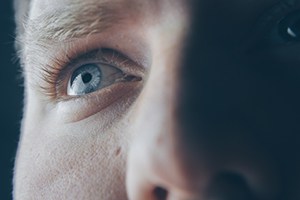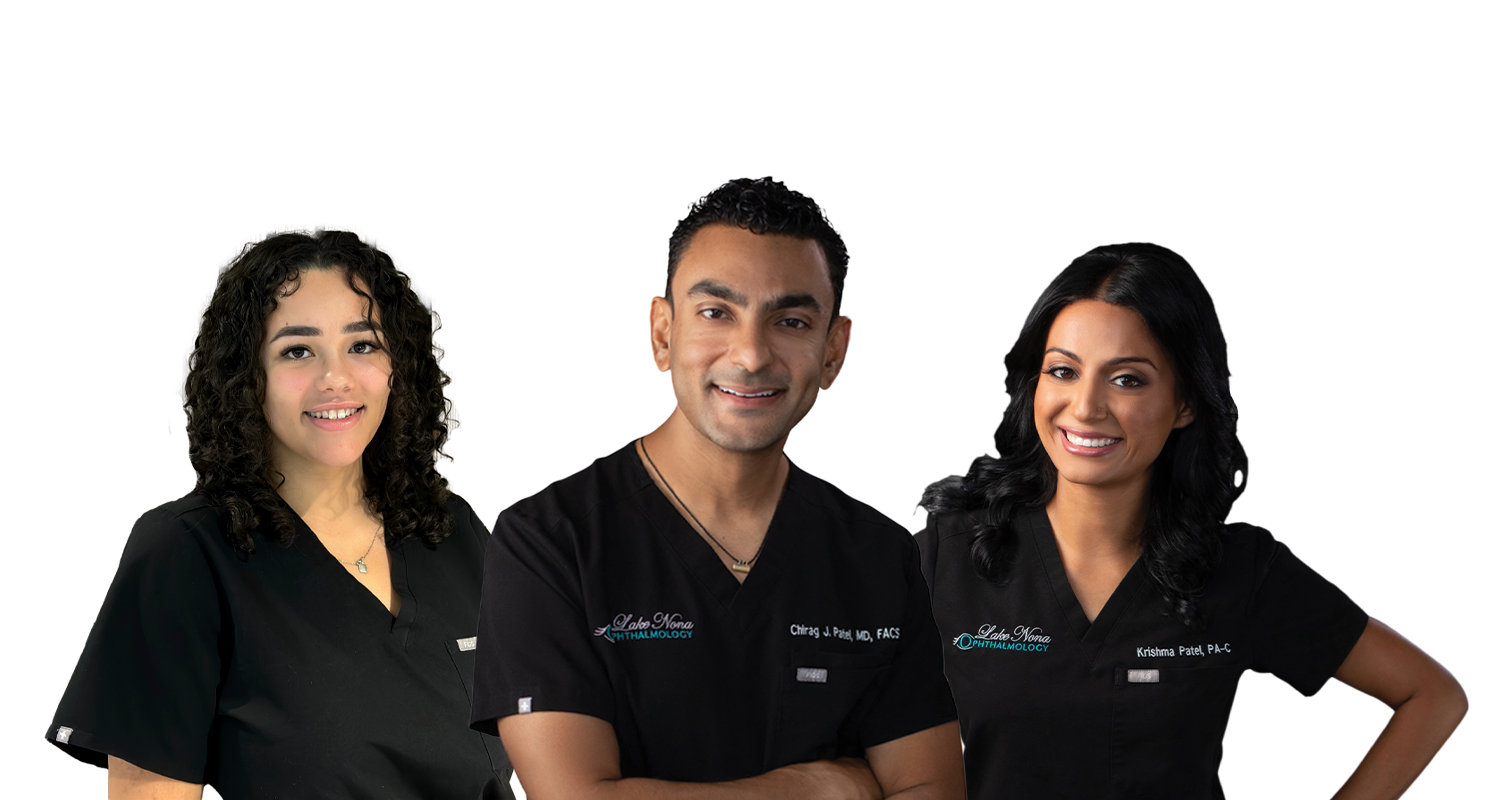
Glaucoma happens when high pressure in your eye damages your optic nerve. Over time, it can make you lose your eyesight permanently. However, there are measures you can take to slow it down and help save your vision. Regular eye exams are the best form of prevention against significant glaucoma damage.
Below we’ll break down 3 simple things you can start doing right now to slow the progression of the condition.
What Is Glaucoma?
Glaucoma is known as the “silent thief of sight” and is the leading cause of irreversible blindness in the United States. More than three million Americans are living with glaucoma, 2.7 million of whom—aged 40 and older—are affected by its most common form, open-angle glaucoma. While most symptoms are hardly noticeable at first, the loss of vision occurs gradually over time; and once vision is lost, there is no replacing it.
Glaucoma is an eye condition that damages the optic nerve, which is what sends visual information from the eye to the brain. This damage is typically caused by increased pressure, also known as intraocular pressure. While the exact cause of glaucoma is not known, increased pressure on the eye is frequently a factor. If left untreated, glaucoma can cause blindness.
Who Is at Risk for Developing Glaucoma?
Some people face a higher likelihood of developing glaucoma. Glaucoma risk factors include:
- Family history of glaucoma
- Age
- High eye pressure
- Being farsighted or nearsighted
- Suffering an eye injury
- Thin corneas
- Thinning of the optic nerve
- Other health conditions like diabetes, poor blood circulation, and migraines
Having more than one of these risk factors significantly increases your likelihood of developing glaucoma.
Preventing Glaucoma
Immediate treatment for early-stage glaucoma can delay the progression of the disease. That’s why early diagnosis is vital.
1. Get your eyes checked regularly
Early detection and diligent, lifelong treatment can maintain vision in most people. In general, a checkup for glaucoma should be done:
- before age 40, every two to four years
- from age 40 to age 54, every one to three years
- from age 55 to 64, every one to two years
- after age 65, every six to 12 months
A glaucoma screening consists of a complete eye exam, including measurement of intraocular pressure and examination of the optic nerve. Those at high risk for glaucoma should also have a measurement of corneal thickness, visual field testing, and optic nerve imaging.
Anyone with high-risk factors should be tested every year or two after age 35. Those at higher risk include people of African descent, people with diabetes, and people with a family history of glaucoma. You are at increased risk if you have a parent or brother or sister with glaucoma.
2. Reduce eye pressure
 Unless you have your eye pressure checked by an eye doctor, you may never know it’s high, and you typically won’t feel any symptoms. In some cases, if you have increased eye pressure, your doctor may prescribe special eye drops designed to reduce the pressure in your eye and delay the onset of glaucoma.
Unless you have your eye pressure checked by an eye doctor, you may never know it’s high, and you typically won’t feel any symptoms. In some cases, if you have increased eye pressure, your doctor may prescribe special eye drops designed to reduce the pressure in your eye and delay the onset of glaucoma.
The following tips may also help you control high eye pressure and promote eye health:
- Eat a healthy diet. A healthy diet can help you preserve your health, but may not prevent glaucoma from worsening. Several vitamins and nutrients are essential to eye health, including zinc, copper, selenium, and antioxidant vitamins C, E, and A.
- Exercise safely. Regular exercise may reduce eye pressure in open-angle glaucoma.
- Limit your caffeine. Drinking beverages with large amounts of caffeine may increase the pressure in your eye.
- Sip your fluids. Drink only moderate amounts of fluids at any given time during the day. Drinking a quart or more of any liquid within a short time may temporarily increase eye pressure.
- Sleep with your head elevated. Use a wedge pillow that keeps your head slightly raised, about 20 degrees — this has been shown to reduce intraocular pressure while you sleep.
- Take prescribed medicine. Use your eyedrops or other medications as prescribed to get the best possible result from your treatment.
3. Prevent eye injuries
Protecting your eyes from injury is one of the simplest things you can do to keep your vision healthy throughout your life. And another way to reduce your risk of glaucoma is to avoid eye injuries. That means protecting your eyes during home improvement projects, sports, or any other activity that could cause eye trauma.
Wearing protective eyewear significantly reduces your risk of eye injury and vision loss. In fact, up to 90% of eye injuries can be prevented by wearing proper protective eyewear. According to a national survey by the American Academy of Ophthalmology, only 35 percent of respondents said they always wear protective eyewear when performing home repairs or maintenance. Even fewer do so while playing sports.
We encourage you to visit us for a comprehensive eye exam. If we detect any signs of glaucoma, you will meet with a specialist and discuss your treatment options. The glaucoma specialists at Lake Nona Ophthalmology will go over all of the risks and benefits of each procedure and help determine which treatment plan is best suited for you.
While it’s still unclear exactly what causes glaucoma, these steps can help ensure you have healthy eyes well into your senior years. For more information about glaucoma or to make an appointment, please feel free to contact us.


